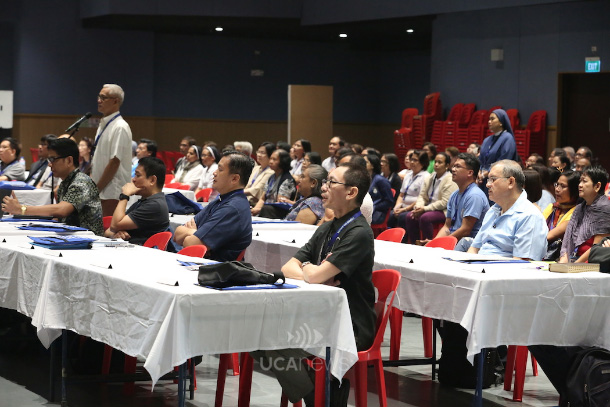
The Philippines, the fifth largest Christian country, will celebrate 500 years of Christianity in 2021.
But would you believe that many Filipino Catholics still hardly understand the Bible, a source of their religion, despite claiming to have read it?
A readership survey by the National Book Development Board in 2018 noted that 72 percent of those surveyed said the Bible was their most read book in the past year.
But a Franciscan Bible scholar said Filipino Catholics are still struggling in how they should understand and read the Bible.
Father Cristino Robles Pine said this lack of understanding is rooted in history, way back during the early years of the Church when access to the scriptures was limited to church leaders.
Unfortunately, when the Bible was made available to the public, especially after the Second Vatican Council, Filipino Catholics seemed to quickly lose interest.
“We are still struggling,” said Father Pine.
“When we read the Bible, we read it simply as a kind of inspirational thing without really seeing that our very life, our very situation is actually being reflected in its pages,” he said.
He said people should understand that the Bible is rooted in social realities.
“I always believe that the Bible is not born out of a vacuum, it has its own socio-cultural, political context,” said the Franciscan.
“That makes the Bible relevant to our present life,” he said.
Challenge to lay people
Making the scriptures relevant to one’s life requires an understanding of the Church and how one should work with and in it.
Bishop Pablo Virgilio David of Kalookan said society expects church leaders to speak about what is spiritual and moral, “but when we speak about it, we are accused of politicizing.”
The prelate has been at the receiving end of vilification for his condemnation of drug-related killings in the country.
“When I speak about [extra-judicial killings], we speak about life, but they would tell us that we don’t have the right, that we have no moral ascendancy,” said Bishop David.
Speaking ahead of the annual meeting of the Catholic Biblical Association of the Philippines on Aug. 31, the prelate challenged both the clergy and the laity “to conceptualize ministries that are meant to serve the world” to change people’s understanding of the Church.
He noted that people’s “common notion” of ministry in the Church “has this tendency to be very parochial in the negative sense … in the sense of being self-referential, narrow-minded, inward-looking.”
In his talk on the relevance of the “preexilic oracle of judgment” to present society, Bishop David cited texts from the Old Testament, especially from the prophets, as a template in what he described as “prophesying against the abuses,” especially those committed in the Philippines’ deadly war against illegal drugs.
In search of relevance
“Relevance” is one of the reasons for the Catholic Biblical Association of the Philippines’ being, said its president, Salesian priest Joel Camaya.
Like other fields of knowledge, relevance is “a perennial clamor” even in studying the scriptures, he said.
The priest said that they have been working on “Biblical themes” on the poor, on the “communion of communities,” religious and consecrated life, as the celebration of 500 years of Christianity in the country nears.
He cited the call of Pope Francis to help young people understand that the scriptures often speak about the youth and “of how the Lord draws near to encounter them.”
“When we look at young people in our different settings … we hear that constant refrain: stay with us,” said Father Camaya.
“It is the clamor of the disciples who have experienced Jesus who walked with them, who listened to them, who enlightened them with scriptures, who broke bread with them,” he added.
Father Pine, who serves as secretary of the association of Filipino Biblical scholars, said there are so many factors why people seemed not to have heard or refused to understand the scriptures.
“But it’s not without hope,” he said. “That’s why we’re not stopping in trying to educate as many as we can and as much as we can not only in classrooms but in the pastoral field,” added the priest.
He cited the recent publication of a new Bible translation that is “more palatable and more relevant, at least in terms of language.” He said the message is “already there.”
Joe Torres, Manila
Philippines
September 5, 2019









